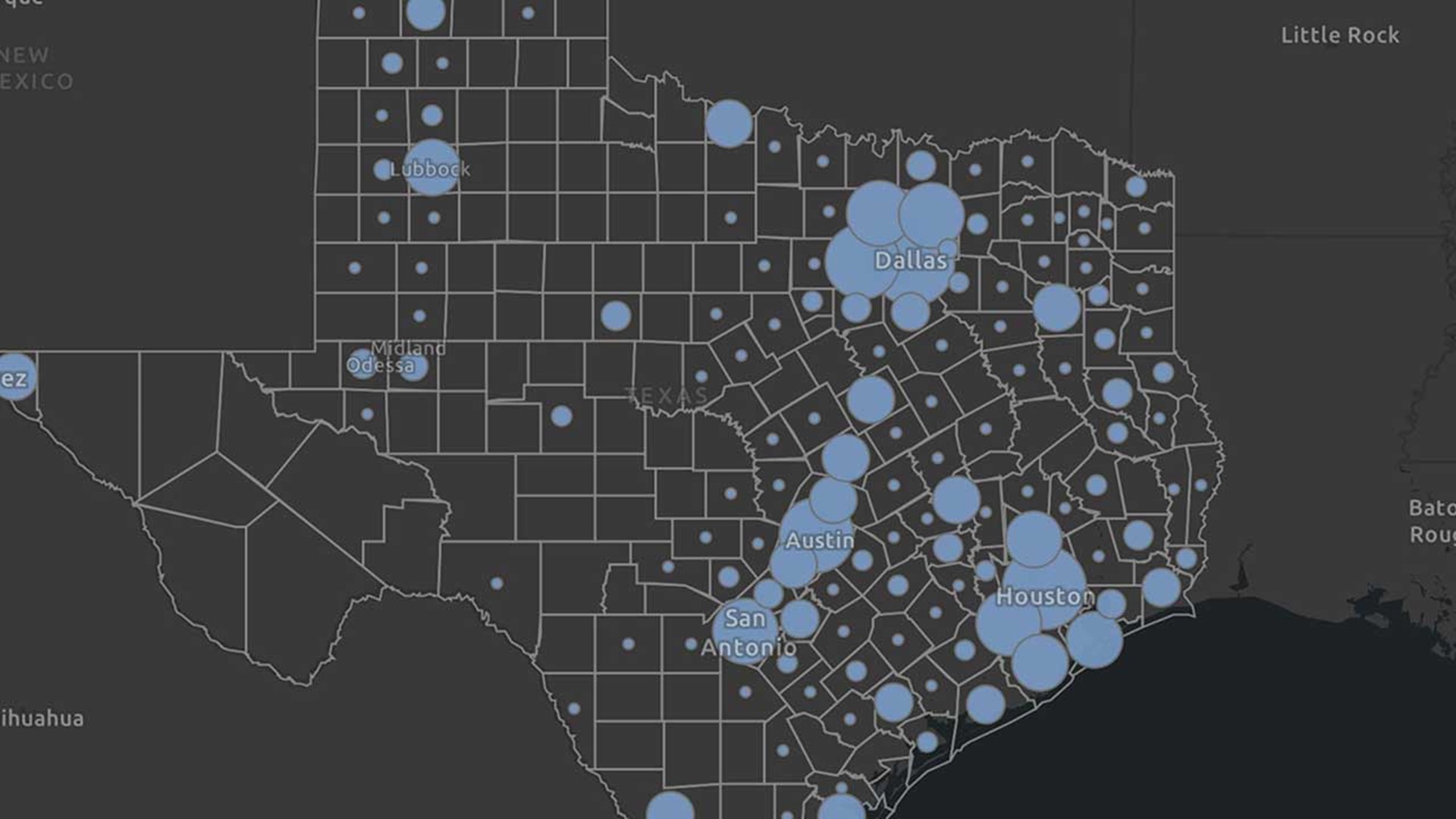HOUSTON, Texas — The threat of coronavirus is impacting families across the region.
It includes undocumented immigrants who are now dealing with the ripple effects of "Stay Home, Work Safe" orders.
Cesar Espinosa, executive director of immigration rights organization FIEL said, efforts to stop the spread of coronavirus is hurting this vulnerable group.
“For the immigration community in general, this is defining moment for us,” Espinosa said.
He said many have been left without jobs and some who continue to work are afraid of getting sick.
Espinosa said, “Because their employers are telling them to do so and out of fear they’re intimidating workers to do things that are unsafe or that may not be acceptable.”
Espinosa said they’ve received calls from a few of them asking things like, “Is it safe to rewash N95 masks?”
When it comes to feeling sick and getting help, he doesn’t know to what extent undocumented immigrants are being affected.
However, he does know people are scared of being turned over to authorities or worried about how seeking medical attention will affect their future status.
“It could affect them in public charge and public charge is the Trump administration guidelines that said that if people were to seek help then they could potentially be barred from applying for immigration benefits,” he said.
Harris County asks anyone showing symptoms to get help regardless of their immigration status.
Also, Espinosa said like other disasters that have affected the city of Houston, it’s going to take grassroots efforts to help undocumented immigrants.
He said, “Unfortunately, though this is something that’s going to have a long lasting impact and we don’t know what kind of help we’re going to be able to provide but a lot of people are already stepping up.”
He said if they’re left to fend for themselves recovery efforts could take longer and it’s important to remember that we are all in this together.
“We need to take care of each other. And just like Houston, we need to come together during these hard times,” Espinosa said. “We came together during Harvey and we will together prevail.”
RELATED: Coronavirus live updates: Trump warns US facing 'toughest' weeks ahead; China reports 30 new cases
Coronavirus symptoms
The symptoms of coronavirus can be similar to the flu or a bad cold. Symptoms include a fever, cough and shortness of breath, according to the Centers for Disease Control. Some patients also have nausea, headaches and stomach issues.
Most healthy people will have mild symptoms. A study of more than 72,000 patients by the Centers for Disease Control in China showed 80 percent of the cases there were mild.
But infections can cause pneumonia, severe acute respiratory syndrome, kidney failure and even death, according to the World Health Organization. Older people with underlying health conditions are most at risk for becoming seriously ill. However, U.S. experts are seeing a significant number of younger people being hospitalized, including some in ICU.
The CDC believes symptoms may appear anywhere from two to 14 days after being exposed.
Human coronaviruses are usually spread through...
- The air by coughing or sneezing
- Close personal contact, such as touching or shaking hands
- Touching an object or surface with the virus on it, then touching your mouth, nose or eyes before washing your hands.
Help stop the spread of coronavirus
- Stay home when you are sick.
- Eat and sleep separately from your family members
- Use different utensils and dishes
- Cover your cough or sneeze with your arm, not your hand.
- If you use a tissue, throw it in the trash.
- Follow social distancing
Lower your risk
- Wash your hands often with soap and water for at least 20 seconds. If soap and water are not available, use an alcohol-based hand sanitizer.
- Avoid touching your eyes, nose, and mouth with unwashed hands.
- Avoid close contact with people who are sick.
- Clean and disinfect frequently touched objects and surfaces.
- If you are 60 or over and have an underlying health condition such as cardiovascular disease, diabetes or respiratory illnesses like asthma or COPD, the World Health Organization advises you to try to avoid crowds or places where you might interact with people who are sick.
Get complete coverage of the coronavirus by texting 'FACTS' to 713-526-1111.

